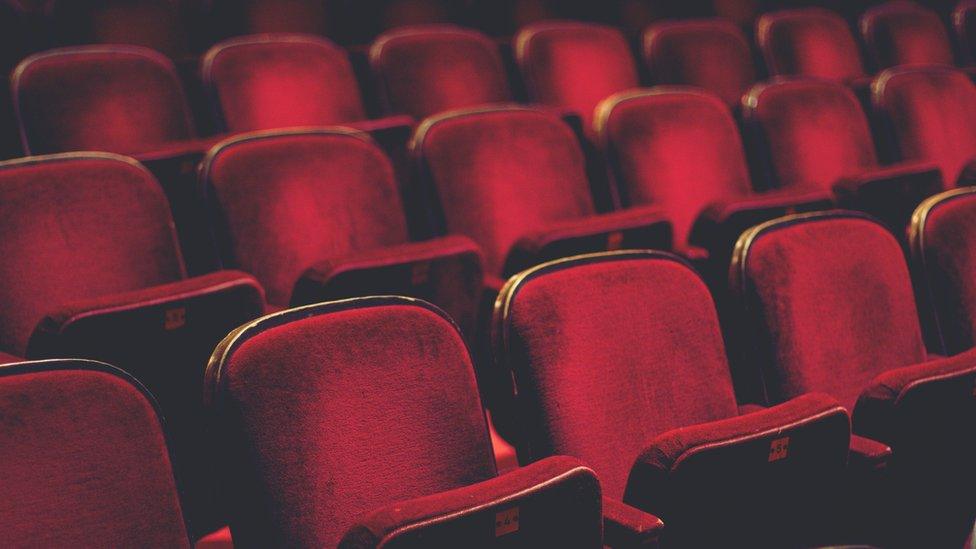Covid-19: Remembering the NI victims a year on from first death
- Published
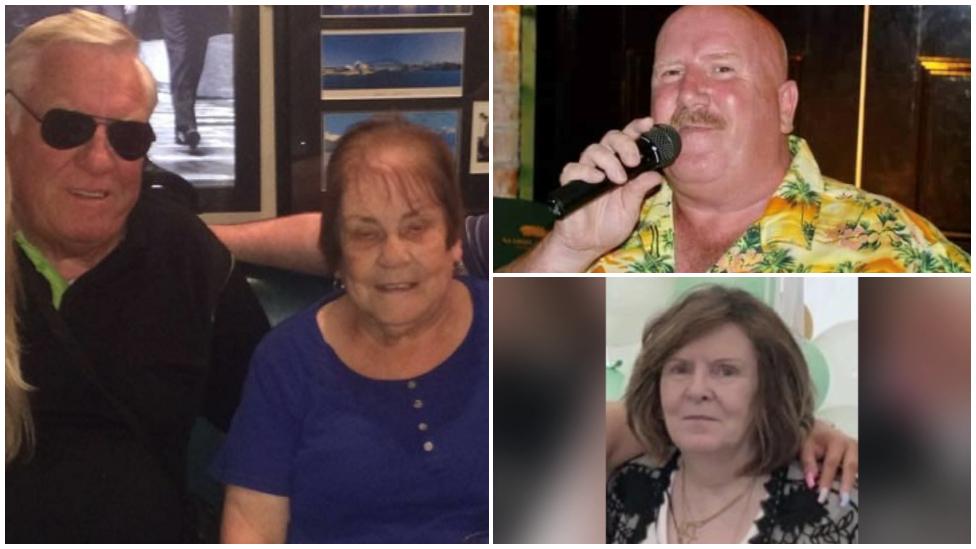
Friday marks a year since the first Covid-19 related death was reported in Northern Ireland.
It came three weeks after the first case of coronavirus in Northern Ireland was confirmed.
The man who died in hospital was elderly and had an underlying medical condition.
He was to be the first of more than 2,000 lives claimed by the virus in Northern Ireland.
Reflecting on the anniversary, Health Minister Robin Swann said "thoughts are very much with the families and friends of those who have died".
"I know I speak for people across Northern Ireland in saying that," he said.
"We can see better days ahead in the battle against the virus, but we must never forget the pain and loss it has caused.
"Nor can we ever overlook its capacity to inflict more suffering. We must remain vigilant and keep taking the steps that we know will stop Covid-19 spreading."
These are the stories of some of those who died and the families they left behind.

'It hasn't hit home with us'
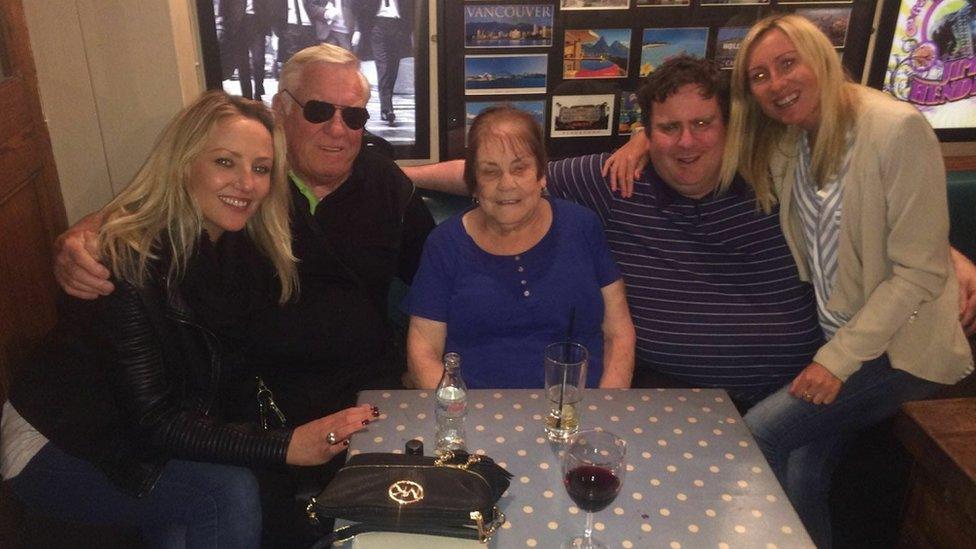
Christopher and Isobel Vallely (centre) died within an hour of each other
Christopher Vallely, 79, and his wife Isobel, 77, had raised their family in London after settling there as a young married couple.
As their children moved away, they too moved - back to their native west Belfast.
And it was in Belfast that their daughter Fiona Vallely and her brothers said goodbye to both their parents within hours of each other.
Lockdown had been in place for barely a week.
"It was their 53rd wedding anniversary on the Friday," said Fiona.
"My dad was already in hospital. My mum got very poorly on the Friday. Friday night she went into hospital and on the Saturday she passed."
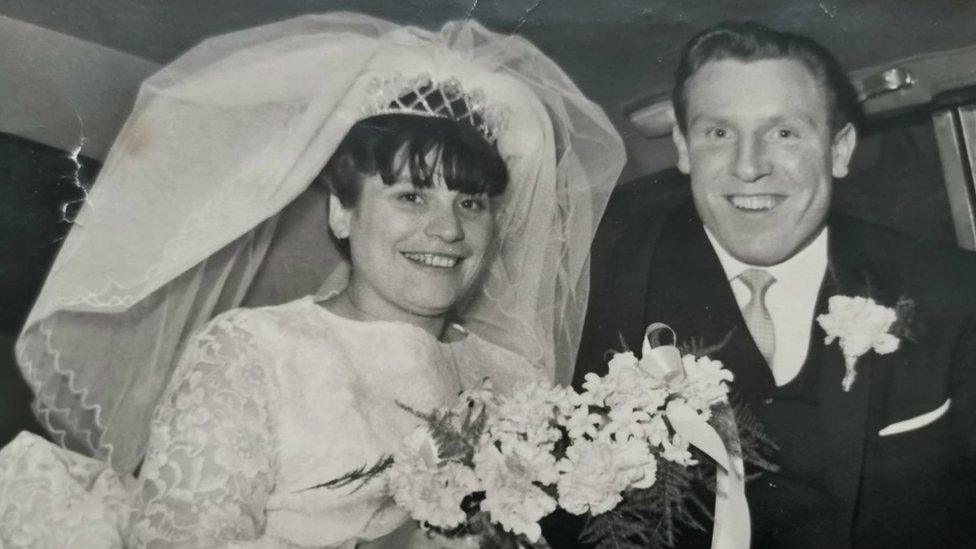
Christopher, better known as Arty, died just an hour later - he didn't know that Isobel had even been in hospital.
"It hasn't hit home with us," Fiona said.
"My dad always wanted to be cremated and my mum always wanted to be buried, which we were able to do under the restrictions.
"But we haven't been able to get the ashes, sort out the gravestone and, obviously, even have a funeral for them. Nothing was normal."
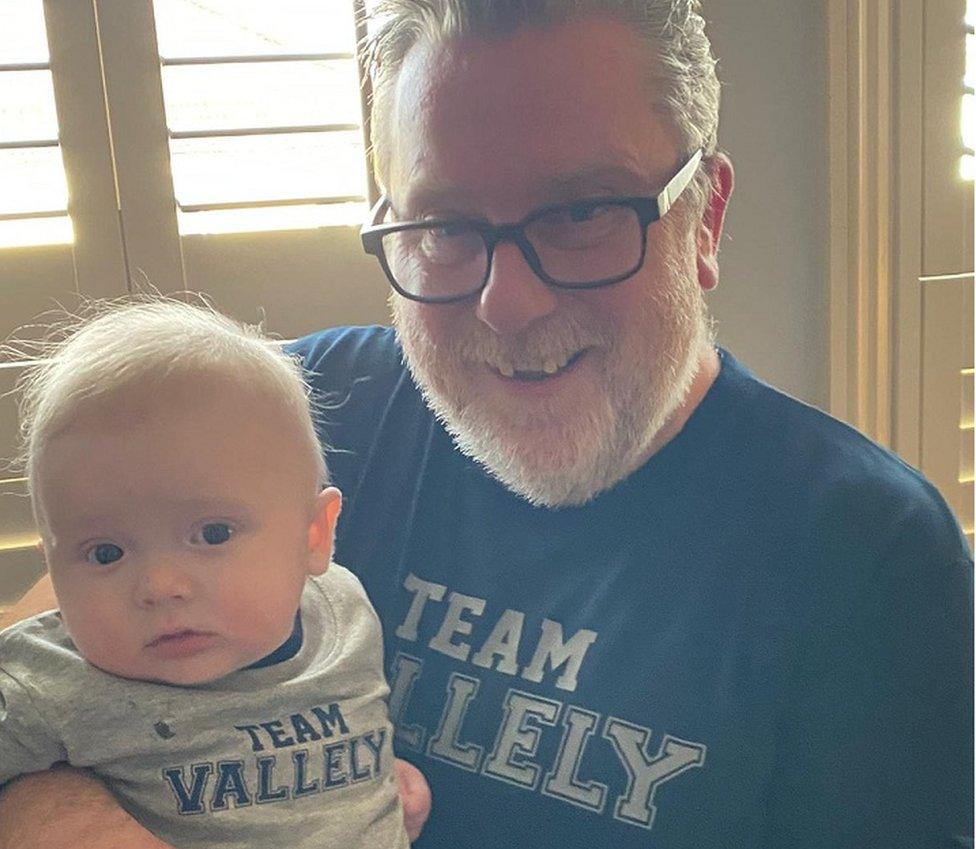
The couple's son Chris pictured with their first grandchild - he is named Arthur, after his grandfather who was called Christopher Arthur and known as Arty
"Obviously it's hard losing your parents for everybody and you never get over that but I think with these circumstances as well - it's very hard," she added.
"I just hope we get back to our everyday lives, then we can get some closure and get things sorted that should have been really done a year ago."

'People say it gets easier - it doesn't'
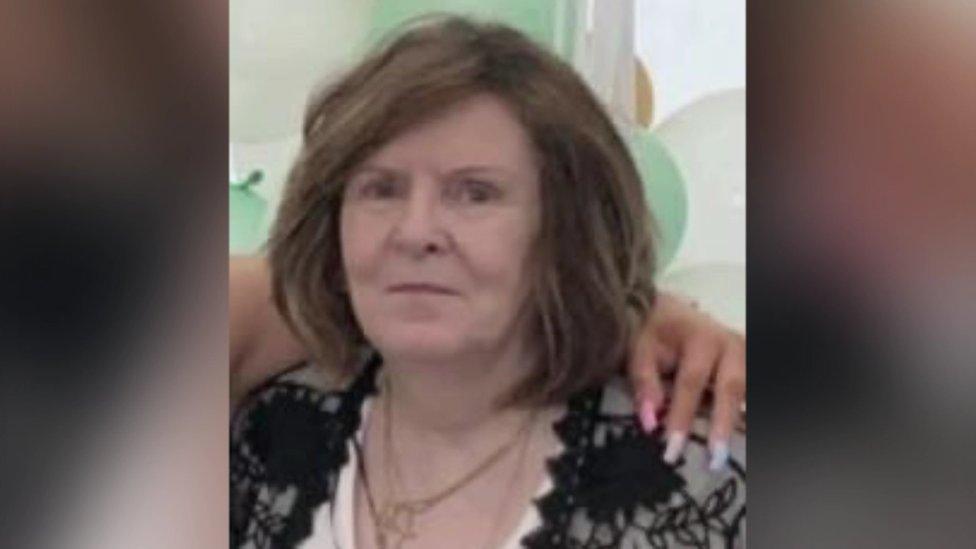
Martina Newell had left ICU and was recovering in the same ward as her son Jonathan when she died
Jonathan Newell tries to count himself lucky - he was able to hold the hand of his mother Martina Newell as she passed away at the age of 68 at Craigavon Area Hospital in November.
Mother and son had left the intensive care unit (ICU) and were recovering from Covid-19 on the ward Jonathan also worked in.
"The grief of losing mum is only really starting to hit us," he said.
"All of us had a really bad week last week leading up to Mother's Day - it's been very hard, especially for Daddy.
"Daddy and mummy would have been 47 years married this year - they'd been together for seven, eight years before that.
"Dad was mum's first love, they were never apart other than when mum was in hospital having the three kids.
"He visits the grave at least once or twice a day."
Jonathan hasn't been able to visit his mother's grave as often as he would like - he's still on oxygen, although the level is slowly reducing.
He can't go out and about by himself. Just this week, his bed was moved back upstairs but getting there is still a challenge.
"I only use the stairs once a day, coming down in the morning and going up at night," he said.
"Having a shower is the biggest issue - it can take anything up to an hour and a half.
"Covid has really taken away my quality of life. I have to lie down during the day. I'm always short of breath. It's unbelievable."
His recovery from Covid-19 is slow - recovering from the loss of his mother will take much longer.
"For me, it's a wee bit easier, because I was with her," he said.
"For my dad and my two sisters it was very, very hard because they hadn't seen mum for three weeks previous other than to do FaceTime.
"People will always say to you it gets easier - it doesn't.
"I can't wait to be able to walk to mum's grave and spend a bit of time there, knowing that I don't have to take this oxygen with me - just to be there, on my own, and have a chat with her at the graveside.
"I can't wait for that day to come."

'We said goodbye over Zoom'
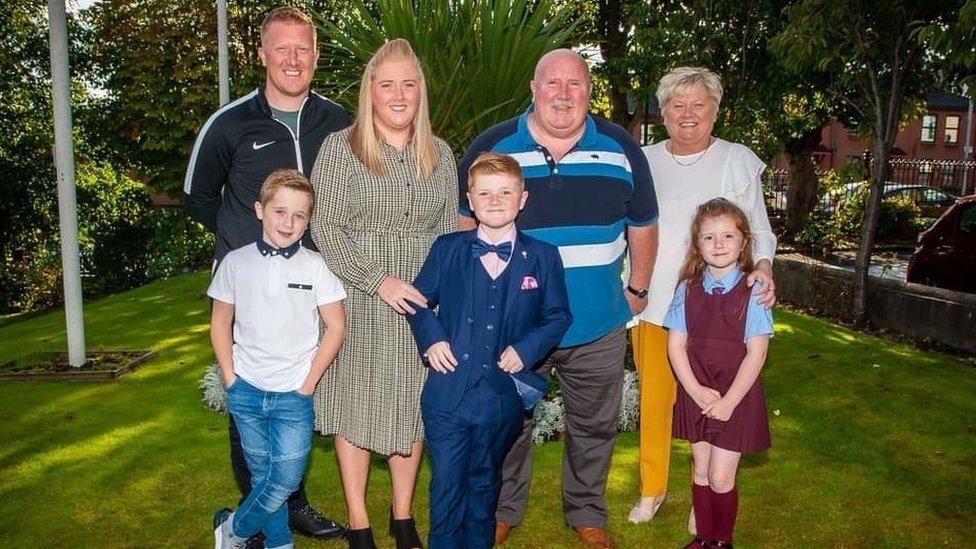
Eugene Ferry, 62, pictured with his family, including Eugene Jr (left)
As the second wave deepened, hospital numbers soared and more lives were lost.
Eugene Ferry, 62, was a natural entertainer, well-known around Creggan in Londonderry, and in County Donegal.
He'd been a footballer for Derry City and a bakery worker.
"That morning that he did go in, 29 October, he walked out of the house and he just goes to mummy: 'I'll see you later on, love'," said his son Eugene Jr.
"He went into the back of the ambulance and that was literally the last time that they physically saw each other."
A few days later Eugene was admitted to an ICU.
Every day the nurses would set up a video call for him with the family.
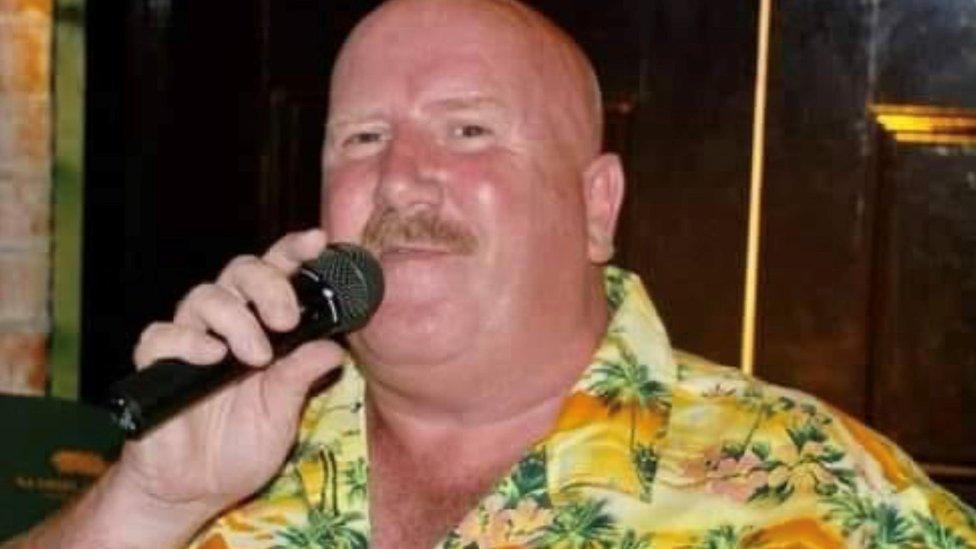
Eugene Ferry, a former footballer, was known as a natural entertainer
"He lost his fight on Tuesday 10 November. When he went into ICU they told us he'll either gradually get better or he'll gradually decline.
"My father gradually declined - even the ventilation couldn't have brought him back round.
"People only see that date of my father's loss - they don't see the two or three weeks that we had to go through before that.
"The way we had to say goodbye was over Zoom.
"The nurses got him dressed, then they video-called us again and we just got to say our goodbye.
"So it was a bit: 'No, this isn't normal,' you know, like a proper send-off - like a proper way to say goodbye."
Related topics
- Published29 July 2021
